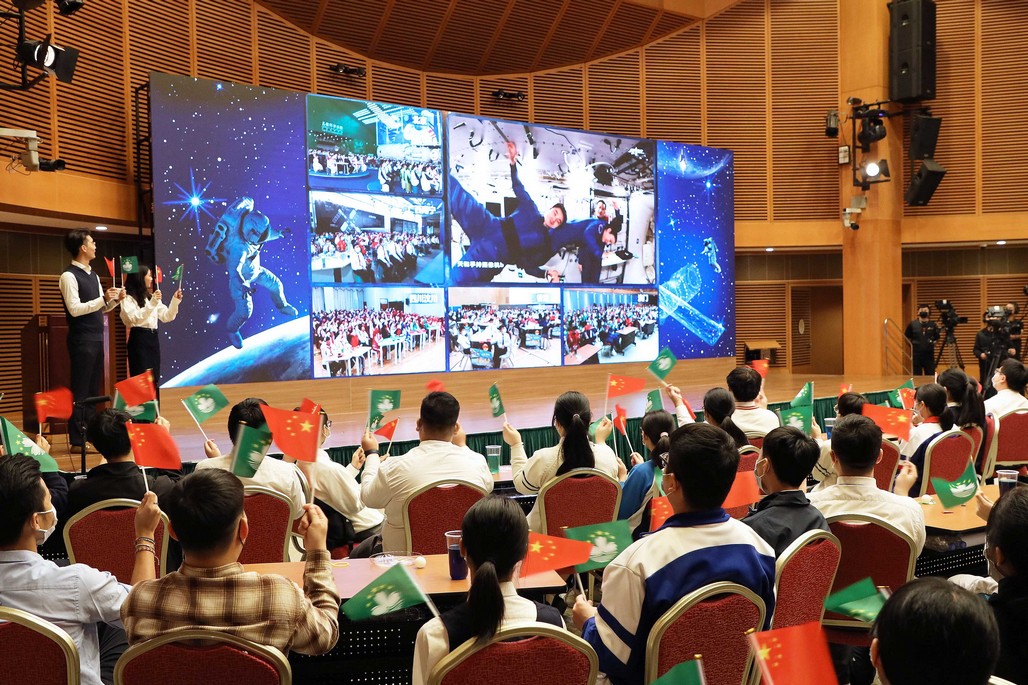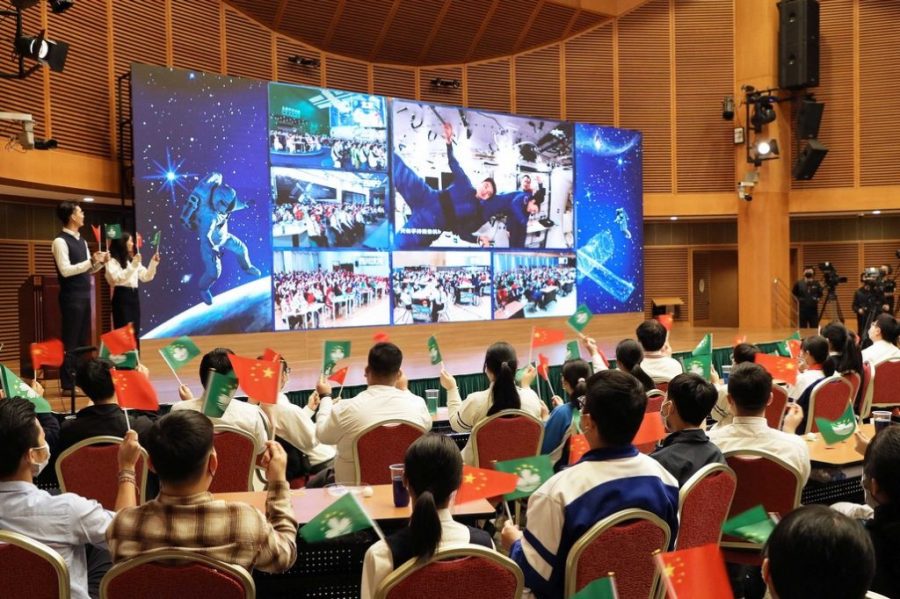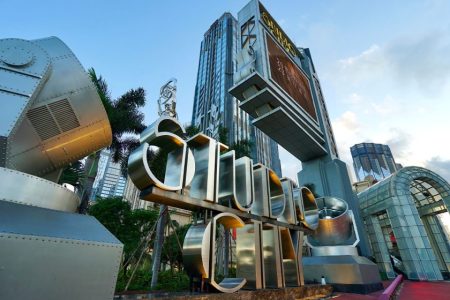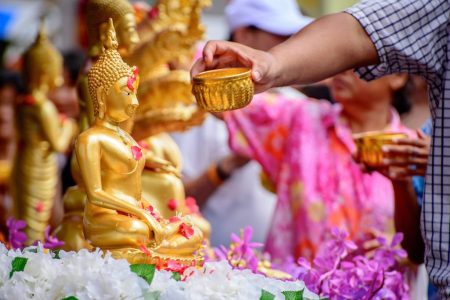More than 10,000 primary and secondary pupils in Macao were riveted by the Tiangong Lecture which was live-streamed by Shenzhou 13 astronauts, Zhai Zhigang, Wang Yaping and Ye Guangfu, yesterday afternoon.
The Education and Youth Development Bureau invited 170 youngsters from 64 schools to the Macao Science Center to take part in the hour-long session, while other pupils watched in their classrooms.
Wang, the nation’s first female astronaut, introduced the living environment on the Tiangong (“Celestial Palace”) – the nation’s first long-term space station – such as the sleeping area, the bathroom and training equipment. The three astronauts also demonstrated a cell biology experiment under a microgravity environment and the phenomenon of liquid surface tension.
During the interactive part of the lecture, pupils from Beijing, Hong Kong, Nanning in Guangxi, Macao, and Wenchuan in Sichuan took part in a question-and-answer session to learn more about being an astronaut.
One Macao pupil asked whether the astronauts can use the internet to receive emails. Ye explained that they cannot directly receive emails but on holidays they are able to video-call their families and watch videos.
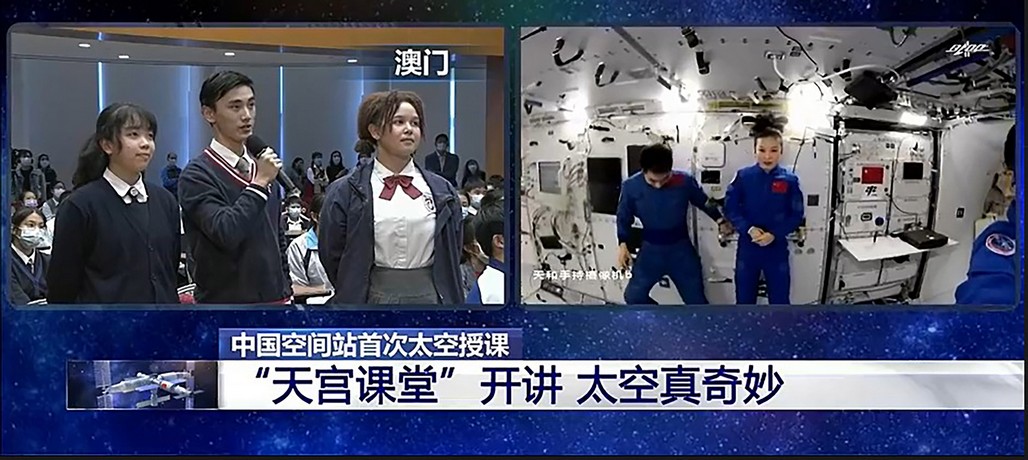
He added that during their leisure time they read novels, watch movies, and listen to music. He underlined that at night they are able to watch TV and are fascinated by the channels available. Other students asked whether they can walk or turn around, how they drink water and if they have oxygen inside the space station.
After the lecture a Macao secondary school student, surnamed Wu, said that it was a rare opportunity to be able to talk to the astronauts. Wu said that she was able to increase her scientific knowledge, especially when Ye explained how waving can help them turn their bodies.
Another secondary school student, surnamed Cheong, said that he liked watching the scientific experiment the most as he could really see theories, which he had learnt in physics class, put into action.
“I was so amazed by the live class given by three astronauts,” said Wong Ging Pui, a senior secondary school student from Tong Nam Middle School.
“I learnt a lot about space as we rarely touch the topic at school. The physics phenomena are also very interesting.”
After hearing about the negative impacts of the space environment on human bodies, Wong expressed his admiration for the astronauts. “Their devotion is worth learning by us all.”
Woo Ka Jyut, a student from Santa Rosa de Lima Secondary School, said she was most interested in the water “ball” experiment. “I didn’t know bubbles could stay inside water ‘balls’ in space.”
Woo said she has had a dream of becoming an astronaut ever since childhood. “China’s first astronaut Yang Liwei is my idol,” she added.
Eloise Vassort Sanches, a student of Zheng Guanying Public School, said the astronauts are “really great” people because they have to stay in space for six months and face high risks.
The three astronauts entered space aboard the Shenzhou-13 spaceship, and transferred to the space station on 16 October, embarking on China’s longest-ever crewed space station construction mission, The Macau Post Daily reported.
